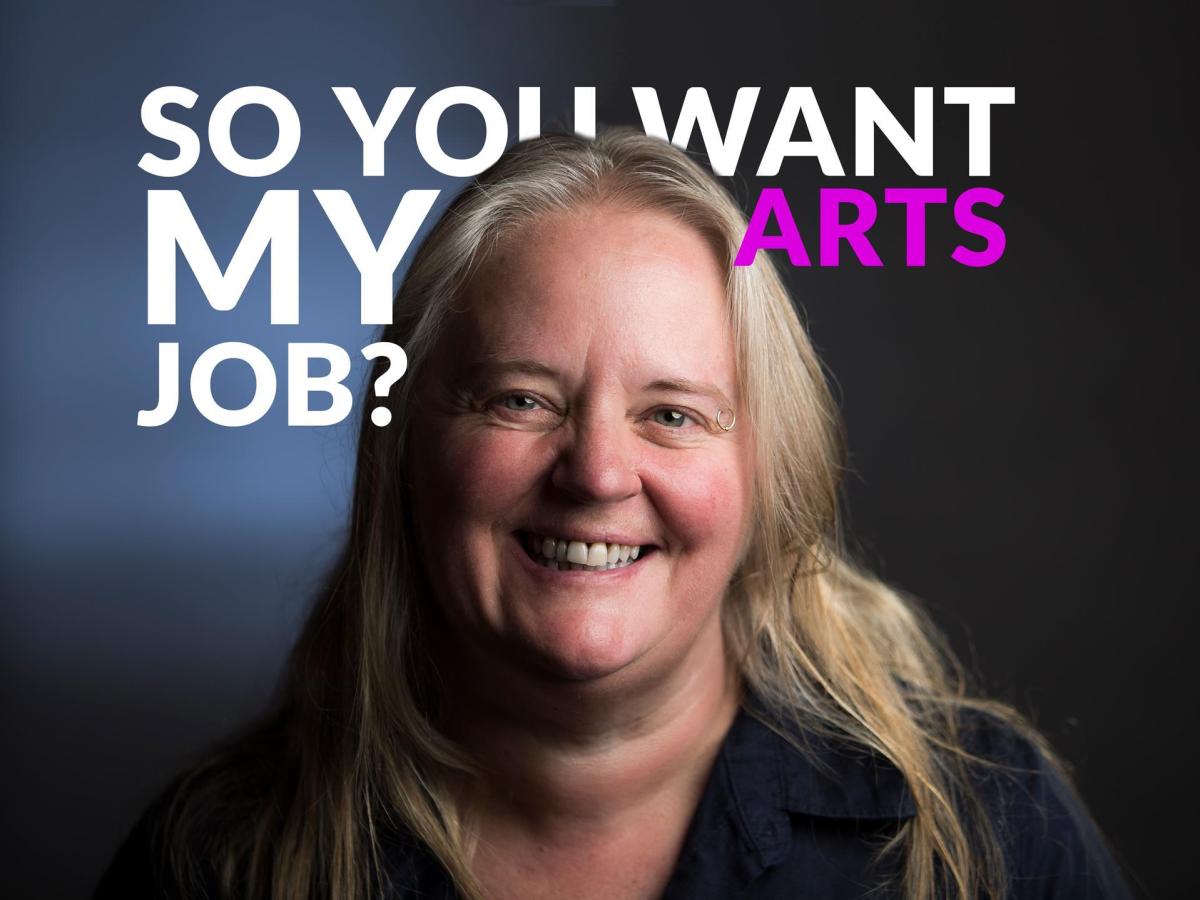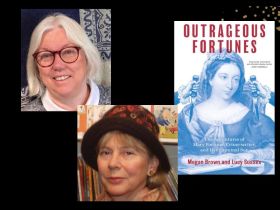Dianne Toulson. Image supplied.
Dianne Toulson is an innovative strategic manager with over 25 years’ experience as Executive Producer, General Manager and Board Member across a diverse range of theatre sectors including women’s theatre, disability sector, regional and ensemble theatre.
With extensive skill in theatre management and touring, Dianne joined the Theatre Works team in late 2017 with a deep understanding of Australia’s independent arts landscape.
Since her appointment as General Manager, Dianne’s highly motivated and dynamic leadership saw the successful delivery of an extensive 2018 season and the programming of 2019 and 2020 seasons alongside former Artistic Director, Bryce Ives. Currently conceptualising the future needs of the organisation with a passionate and visionary approach, Dianne continues to develop the important contribution that Theatre Works makes to the national arts ecology.
1) How do you explain what you do to your parents?
I don’t think my parents have ever really understood what I do – the arts are so far removed from their reality. Growing up in the country, the focus was on ‘practical’ career opportunities; we were so under-exposed to culture, the arts and even human diversity.
My parents are very proud of my brothers – who took the ‘practical’ path – and so am I, but they are a bit unsure on how to outwardly articulate what I do. I did take them to a theatre show once… but it was the worst show! So I think I put them off!
But my career is only one part of me, so I think they look at everything else and I tick the boxes enough for them to be proud of me as a person, partner, mother, nana and a daughter.
2) How did you get started in your career?
After spending many years being self-employed or working in corporate environments, I decided to have a gap year. In that time, I found a passion in producing events, festivals, exhibitions and connecting with artists and creatives in that environment. I felt renewed! I was inspired after seeing how my knowledge and support gave artists a platform, opportunity and of course, payment for what they do!
It suited me as I was my own boss and in control of what I did. Then one day, my new partner told me (nicely and with encouragement) to ‘stop bumming around, get a real job and build a career’. So, I applied for the General Manager role at the Women’s Circus and got it!
3) What is the biggest misconception about working as a GM in the theatre sector?
The arts sector has come a long way since I started. In the 2000s, there was a glass ceiling for women, who were often employed in positions as General Manager, but realistically worked above and beyond their perceived role, regularly being the lynch pin for the company. At that time, there were mostly men in the CEO and Artistic Director positions – who were possibly doing far less than their General Manager. This has certainly shifted, to a point, but maybe not enough.
Since working in the NFP arts sector, and with organisations that have incredibly limited budgets, my knowledge and skills have grown exponentially. Maybe because under such restraints, you have to be hands-on and fill all the gaps, or indeed step up and lead. I am lucky to have extensive experience in business and financial management as well as learned and lived experience in creative producing and programming that I have gained over my arts career.
I also think the title of General Manager in the arts is outdated and undervalued.
4) Why do you think that?
If you look back at the history of artists banding together to create work, gathering momentum and evolving into a company (or form thereof), there is one constant stress: the pressure of seeking funding. To comply with funding requirements, administration became a necessity and General Managers were appointed as the top position in the arts organisation.
Then came the pressure to grow (or maybe just survive) and suddenly these companies required boards to help them jump on the funding treadmill and justify why their creative practice needs the bucks. Successful board composition was driven by funding requirements and the need for varied skills in governance, finance, philanthropy etc.
The influence of corporate practice steered companies towards a shift in titles. Larger organisations with complex operating requirements and structures needed a clear line of authority, and suddenly the title of GM shifted to CEO or Executive Director, despite responsibilities staying more-or-less the same.
The challenge here is that with these new titles comes an expectation of higher remuneration. A job advertised as GM is likely to be paid less – and for organisations with budget limitations, it’s the only way to attract candidates.
We’re starting to see a title shift across the arts, with more progressive thinking tied to an interrogation of practice and the contribution individuals make with their skills and experience.
But for now, the reality is, in small-to-medium not-fr-profit organisations, a GM generally does the same job as a CEO or Executive Director: running the main day-to-day business activities of a company.
5) In an interview for your job what would you be looking for?
I am only as good as my team. Collaboration within the team is vital to arts organisations. It can be challenging and hard work. So of course, capacity to communicate is the most vital piece of the puzzle for a GM. I believe every person brings their own element of experience and value to a role and that everyone is different.
When you walk a fine line of financial limitation within an organisation there needs to be a balance between artistic decisions and financial viability. This is a rare skill. The GM may not have final say on the artistic decisions; however, they are integral in the sign-off and the one left to manage the success or fallout.
Of course, lead by example, push the right people forward and step in front when you need to.
6) What’s the best thing happening in the small to medium sector at the moment?
There seems to be a lot of opportunities for professional development, mental health in the arts (so important) and vital supports for the future of the arts. My biggest concern is that the people who need to have these opportunities maybe aren’t getting them? The major, well-funded organisations are rolling out some great stuff but who are they including in the conversation in the first place?
Of course, the small to mediums and independents can access these initiatives if they have the time and resources. But do they? I know I need to go and knock on some doors to be involved, heard and considered in the conversation; I need to represent the artists and creatives that we work with and give them a voice.
Located in the Melbourne suburb of St Kilda, Theatre Works turns 40 in 2020. Learn how you can assist with the celebrations.





